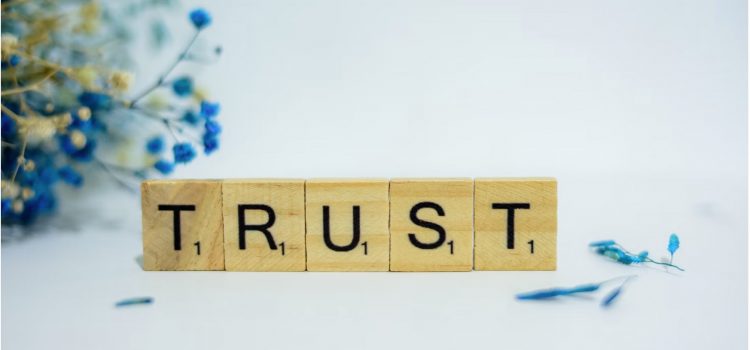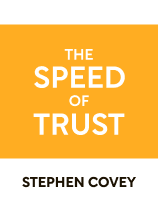

This article is an excerpt from the Shortform book guide to "The Speed of Trust" by Stephen M. R. Covey. Shortform has the world's best summaries and analyses of books you should be reading.
Like this article? Sign up for a free trial here .
In The Speed of Trust by Stephen Covey, what’s Covey’s argument for trust as an asset? Why is trust so important in all aspects of life?
According to Stephen Covey’s The Speed of Trust, cultivating trust in your personal and professional relationships is crucial for success. Covey explains how building trust impacts the value of your assets, your efficiency at work, and the results of the effort you put into relationships, both personal and professional.
Keep reading to learn the value of trust and the impact of gaining or losing trust, according to Stephen Covey’s The Speed of Trust.
The Speed of Trust
In The Speed of Trust, Stephen Covey explains why trust is a game-changer in every personal and professional relationship and lays out a roadmap for building and leveraging trust for success. His experience as the co-founder of the FranklinCovey Global Speed of Trust Practice and CoveyLink, and as the former CEO of The Stephen R. Covey Leadership Center, lends a career-worth of credibility to his arguments. Stephen Covey’s The Speed of Trust is a Washington Post, New York Times, and Wall Street Journal best seller. His book is accessible and actionable enough that readers can start building trust in their own lives today.
Trust Is Our Most Valuable Asset
In Stephen Covey’s The Speed of Trust, he claims that trust is a critical yet undervalued prerequisite for success in the modern world. Trust deepens relationships, creates opportunities, and improves the efficiency of interpersonal interactions. In The Speed of Trust, Stephen Covey argues that you’ll be more successful in your personal and professional life when you make trust a top priority.
While you might not think about trust like you would other assets (property and bank account balances, for instance), Covey argues that it’s actually your most valuable asset. In this section, we’ll explore this argument by examining how Covey sees the relationship between trust and value, trust and efficiency, and trust and effort.
Trust and Value: Trust sets the tone of every interpersonal interaction. Therefore, it dictates how much your assets are worth in real-world situations, regardless of their worth “on paper.”
Trust and Efficiency: Trust helps you achieve outcomes more efficiently, hence the title The Speed of Trust.
Trust and Effort: Trust also dictates the results of your efforts. Covey represents this idea by modifying the classic business equation, Results = Strategy x Execution to Results = Trust (Strategy x Execution). As the equation shows, given the same strategy and execution, high trust magnifies your results while low trust minimizes them.
How to Cultivate Trust
According to Stephen Covey’s The Speed of Trust, after recognizing the importance of trust and thinking of it as a measurable quantity, you should learn how to cultivate trust in your personal and professional relationships. The first step in learning how to build trust is understanding what makes a person trustworthy. According to Covey, trust comes from credibility, which has four components: principles, motives, skills, and track record. He calls these the “four cores of credibility.” We’ll refer to them as the building blocks of trust. To merit trust in any situation, you must display all four building blocks of trust. Any missing or questionable building block can erode people’s trust in you and your trust in yourself.

———End of Preview———
Like what you just read? Read the rest of the world's best book summary and analysis of Stephen M. R. Covey's "The Speed of Trust" at Shortform .
Here's what you'll find in our full The Speed of Trust summary :
- Why trust is the ultimate key to success
- A roadmap for building and leveraging trust
- An explanation of Steven Covey's “four cores of credibility”






